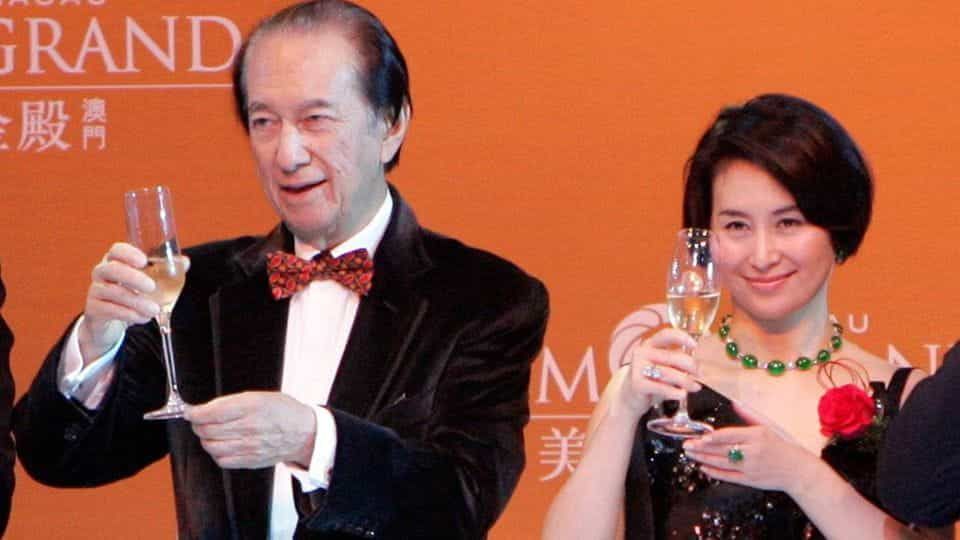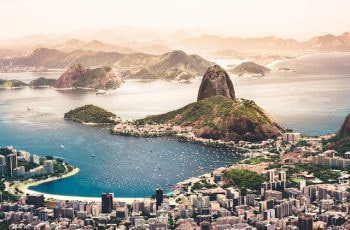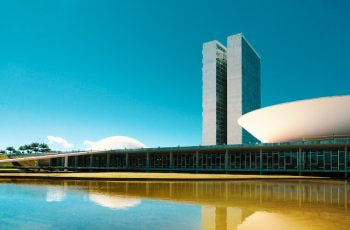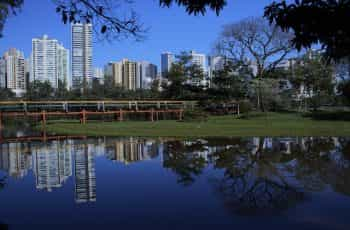Billionaire Pansy Ho Eyes Brazil’s Gaming Market
Pansy, daughter of Macau’s “King of Gambling” Stanley Ho, told the Macau Global Tourism Economic Forum that she is interested in the gaming market in Brazil should licensing become available.
Ms. Ho made her comments at a press conference held in Macau on Monday, October 14.
Daughter of a Macau Billionaire
Pansy is the eldest daughter of Stanley Ho, colloquially known as Godfather or King of Gambling in Macau due to his extensive presence in the Macau gaming circuit. Today, it is estimated that Mr. Ho’s various enterprises in Macau — most of which focus partially, if not entirely, on casinos and gaming — employ one-fourth of the local population.
Mr. Ho had been given a government-granted monopoly of the local casino industry for decades, allowing him to grow a tremendous empire in the local gaming market. Today, Macau is home to some of the world’s biggest casinos, and gambling tourism comprises 50% of Macau’s annual revenue. This makes gaming Macau’s largest contributor to gross income.

Stanley Ho, left, with his daughter, Pansy, heiress of the MGM Macau and billions of dollars. ©www.forbes.com
After a stroke in 2010, Mr. Ho began to divide his many holdings between his children – of which he has 17 – and his various spouses, past and present. Those who retained the most significant holdings after this division were his fourth wife, Angela Leong, in the form of casino operator SJM Holdings; his son, Lawrence Ho, who received ownership of resort and casino in Macau; and Pansy, who received ownership of MGM Macau.
This stake gave Pansy the greatest portion of his wealth. Today, Pansy’s net worth is valued at $4.54 billion.
At An International Press Conference, Ho Keeps Her Eyes Forward
The Global Tourism Economy Forum took place in Macau this past week (October 13-15), with participants coming to the city from around the world to hear from some of the industry’s leading figures. Participating countries included Argentina and Brazil.
The forum came at a good time: with ongoing trade tensions and protests in Hong Kong, tourism to Macau — and, by extension, Macau’s gaming industry — has been struggling. As a result, Macau has been less than impressed with its gaming revenues, which continued to stagnate — and even fall — during Golden Week, a week-long celebration of national pride in China.
With local markets less than pretty, it is, perhaps, not surprising that Ms. Ho elected to look elsewhere.
For Many, the Latin American Market Holds Promise
Many countries and regions have been angling to name themselves “the next Macau”: Japan, the Philippines, and many Latin American countries among them.
With increasing leniency for regulation and a growing familiarity with online gaming, the Latin American market has been of continued interest to those in the gaming industry, particularly in Argentina, Mexico, and Brazil.
Many Latin American countries have had a longstanding history with gaming, so implementing a robust gambling industry is a natural progression for cultures already friendly to betting. What’s more, most of the 26 countries in Latin America are Spanish speaking, and a linguistic uniformity makes spreading content across countries much easier than in, for example, the European market, where many different languages are spoken.
In 2018, the gaming market in Latin America grew 13.5% from the year before, and some predict this will continue increasing by 50% over the next 3 years. In 2019, it is estimated online gambling will earn a net worth of $2 billion in Latin America by year’s end, which is more than triple what the Southeast Asian market will earn for this year.
What’s So Special About Brazil?
Historically, Brazil has been closed off to gambling, with laws that rendered all gaming activity illegal since the 1940s. In the last few years, however, Brazil’s government has been increasingly friendly towards the gaming industry. In 2018, Brazil’s then-President Michel Temer passed a law that allowed sports betting in the country, and a short time later, the government passed a bill legislating online gambling. Still, Brazilian citizens eager to participate in the exciting world of online gaming were still able to access online gaming websites, although these were European-based. By transitioning into a government-sanctioned online gaming industry in Brazil, the country can expect a tremendous influx of new revenue — up to hundreds of millions annually.
After news that the government was beginning to warm to the idea of resort-casinos in Brazil, 32 new casinos were legalized. This law establishes regulations as to how many casinos can be held in Brazilian cities in relation to the size of the population. For example, cities smaller than 15 million citizens may only open one casino. However, in Sao Paolo, home to more than 45 million people, up to 3 casinos are allowed.
Pansy Ho’s Perspective: Great Possibility in Brazil
At last week’s conference in Macau, Ms. Ho referenced the importance Brazil has in the global marketplace, given the size of its population and its economy. In her speech, Ms. Ho suggested Brazil could quite realistically become home to integrated resort-casinos like those in Macau, saying:
“I’m quite sure there will be some of the existing [gaming operators] that would be clearly interested [in investing.]”
Attending the conference was Brazilian Minister for Tourism, Marcelo Álvaro António, who made clear that Brazil has focused distinctly on growing their casino industry in the hopes of bolstering tourism and overall revenue. In a statement, Mr. António said, “I want to remind you that the legislative [power] in Brazil is considering regulating the operation of casinos in [resorts] …, opening major avenues of investment.”
Ms. Ho emphasized in her speech that she has not spoken with Brazil authorities directly. Still, it seems these industry leaders have one point in common, and growth in Brazil’s casino market (one way or the other) is sure to follow.



